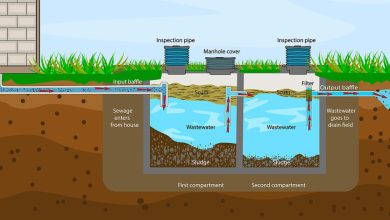Selecting the Best Organic Fertilizer for Your Garden

Gardening is a beautiful hobby that offers beauty, exercise, family time, and the pride of growing your vegetables. Although the process is simple, plants must have oxygen, carbon dioxide, and water to thrive. These four elements are simple enough, but getting the soil right or selecting the right organic fertilizer for your vegetable gardens can be challenging.
Organic soil has the highest levels of macronutrients, microbes, and hummus. Organic fertilizers can help maintain healthy soil. Mother Nature is resilient and adaptable in the growth process. It doesn’t take much to get good results. All you need to do is plant suitable soil. Let’s talk about safe and beneficial organic fertilizers for your garden.
Nutrients
Many components make up healthy soil, including nutrients such as potassium, phosphorous, and nitrogen. These are commonly referred to collectively as NPK. So what does each nutrient do?
- Nitrogen promotes the growth of leaves, so specialized lawn fertilizers tend to have higher nitrogen levels than the other nutrients.
- Phosphorus is essential for healthy roots, flowering, and fruiting. A balanced fertilizer such as a 5-10-10 is critical for root crops and tomatoes. In a moment, we’ll discuss the ratios.
- Potassium is essential for plants to stay healthy and strong. It has many benefits, including healthy stems and blooming.
How can you tell if your garden soil has good health? You can purchase a soil test kit at your local garden or home improvement store. You also have the option to check if your municipality offers such a service. For more information on the collection process and requirements, visit their website or contact them.
Rolling the dice can help determine if your soil is suitable for growing vegetables. However, this method could be a bit discouraging if the results are not what you expected and may take longer. If all goes well, and you have a lot of vegetables, you can keep at it. If your first harvest is not abundant, you can use a soil test to identify what your soil needs.
Nutrient Ratio
The nutrient proportion refers to how much each nutrient is present, or NPK, for nitrogen, potassium, and phosphorus. For example, standard fertilizers might have a label that says 10-10-10-10, which means 10% of each nutrient. However, different plants may benefit from additional amounts. For example, organic lawn fertilizer could be 10-2-5.
You may notice a difference in the concentrations of nutrients between organic fertilizer and synthetic fertilizer. For example, synthetic fertilizer contains more nitrogen than organic fertilizer. However, synthetic nitrogen is water-soluble, so it will likely leach away from the soil during rain and watering. Therefore, you may have applied more nitrogen to plants using synthetic fertilizers, but will that amount be retained so the plants can still use it? On the other hand, organic fertilizers are more effective at maintaining and keeping their original composition since they release nutrients slowly.
Importantly, excess nitrogen can cause plants to produce more leaves than flowers. Therefore, a fertilizer specifically made for vegetable plants will break down into a 5-10-10 mix, as described above.
Because vegetables have different needs, applying the same nutrient ratio for every type of vegetable is not practical. Instead, ask a local service to conduct a soil test and advise you on the best nutrient mix for your vegetable garden. To get started, you can use a general-purpose fertilizer such as a 5-10-10 and 5-5-5. As we have already mentioned, the “pretty good approach” works well.
Types of Organic Fertilizers
There are many types of organic fertilizers available. Each class has a different combination of nutrients. It has been shown that both plant-based fertilizers, like cottonseed meal, and animal-based fertilizers, such as composted horse manure, work well. To release nutrients slowly, waste must be composted or broken down over time. The risk of plants being burned by too much nitrogen will be minimized. Mineral-based fertilizers like rock dust or gypsum can improve soil structure and break down heavy soil. They also provide micronutrients like calcium. A soil test will reveal which minerals are missing and what nutrients you need to add to achieve soil health at its best.
Do You Have Questions?
Growing your vegetables can be a rewarding and healthy hobby. You can also get the whole family involved. It’s easy to choose the right location and get the soil right. While growing your vegetables, you can contact Mashpee Landscaping for help with landscaping, lawn care, and anything else you might need to make your yard look its best.


